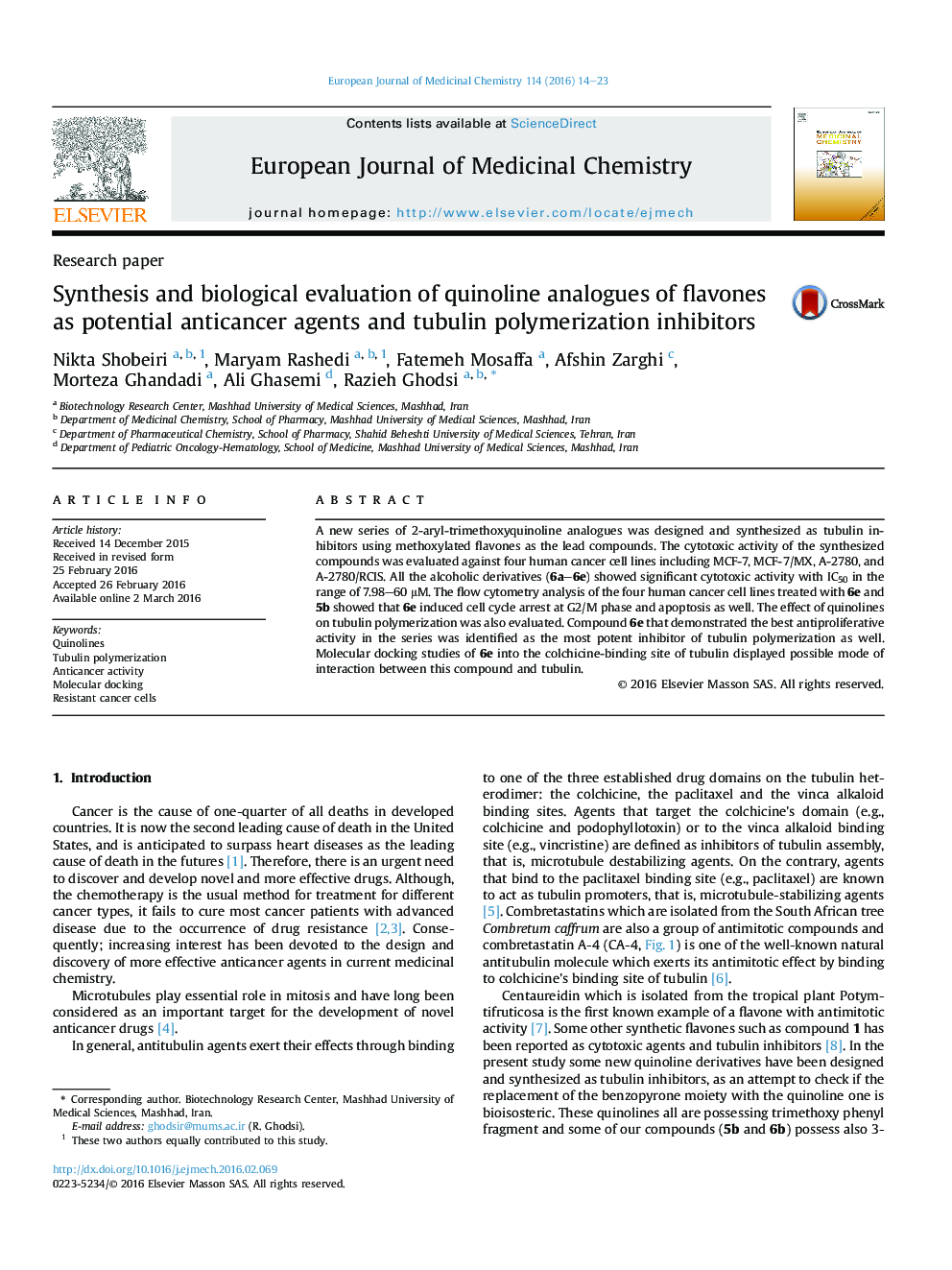| کد مقاله | کد نشریه | سال انتشار | مقاله انگلیسی | نسخه تمام متن |
|---|---|---|---|---|
| 1398630 | 1501102 | 2016 | 10 صفحه PDF | دانلود رایگان |
• Novel 2-aryl-trimethoxyquinoline analogues were synthesized.
• Effects of quinolines on in vitro tubulin polymerization were investigated.
• Some analogues displayed significant cytotoxic activity against resistant cancer cells.
• Compound 6e induced cell cycle arrest at G2/M phase and apoptosis as well.
A new series of 2-aryl-trimethoxyquinoline analogues was designed and synthesized as tubulin inhibitors using methoxylated flavones as the lead compounds. The cytotoxic activity of the synthesized compounds was evaluated against four human cancer cell lines including MCF-7, MCF-7/MX, A-2780, and A-2780/RCIS. All the alcoholic derivatives (6a–6e) showed significant cytotoxic activity with IC50 in the range of 7.98–60 μM. The flow cytometry analysis of the four human cancer cell lines treated with 6e and 5b showed that 6e induced cell cycle arrest at G2/M phase and apoptosis as well. The effect of quinolines on tubulin polymerization was also evaluated. Compound 6e that demonstrated the best antiproliferative activity in the series was identified as the most potent inhibitor of tubulin polymerization as well. Molecular docking studies of 6e into the colchicine-binding site of tubulin displayed possible mode of interaction between this compound and tubulin.
A new series of 2-aryl-trimethoxyquinoline analogues was designed and synthesized as tubulin inhibitors using methoxylated flavones as the lead compounds. The cytotoxic activity of the synthesized compounds was evaluated against four human cancer cell lines including MCF-7, MCF-7/MX, A-2780, and A-2780/RCIS. The effect of quinolines on tubulin polymerization was also evaluated. Compound 6e was identified as the most potent inhibitor of tubulin polymerization. Molecular docking studies of 6e into the colchicine-binding site of tubulin displayed possible mode of interaction between this compound and tubulin.Figure optionsDownload as PowerPoint slide
Journal: European Journal of Medicinal Chemistry - Volume 114, 23 May 2016, Pages 14–23
